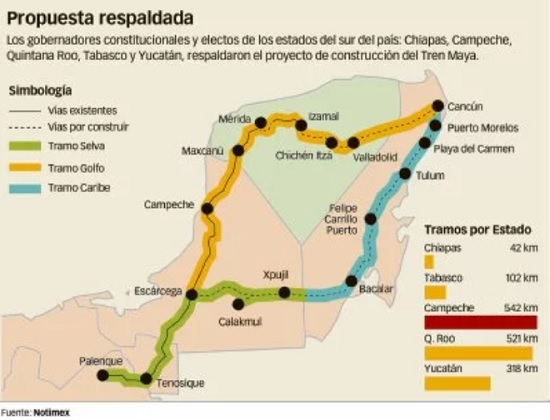The Mayan Train, which seeks the integration of the states of Yucatán, Quintana Roo, Chiapas, Campeche and Tabasco, in southeastern Mexico, is at risk of being executed because of the legal actions promoted — and won — by the indigenous communities.
While federal authorities such as the National Fund for Tourism Development (Fonatur) and the Ministry of Tourism (Sectur), headed by Rogelio Jiménez and Miguel Torruco respectively, are in the midst of promoting the project, the project being classified as the most important of the current six-year term, and which, according to plans will begin construction on April 30th of this year, indigenous representatives of the communities through which the Mayan Train will pass, announced that they have obtained a protection order that will temporarily halt the start-up work, but which could become definitive.

Image: Notimex
It was January 6, when the complaint and request for protection was presented to federal authorities, while the ruling for suspension of the work was issued last January 14, so far the federal authorities have not given answers and nothing has stopped or even slowed down the project. On the contrary, they progress of the project maintain, taking it for granted, even though the president of the republic himself had offered “that if there were protection measures, it would be better not to build the Mayan Train”.
The consultation of indigenous communities was a simulation, because the federal pact was not respected, nor the International Labor Organization’s Convention 169 on Indigenous Peoples, nor international standards.
In mid-December of last year, in the five southern states where the train will pass, assemblies were held in which indigenous representatives “decided” by hand on the execution of the project, but voting booths were also set up in the municipalities where the train would pass.
The Yucatan Times
Newsroom


